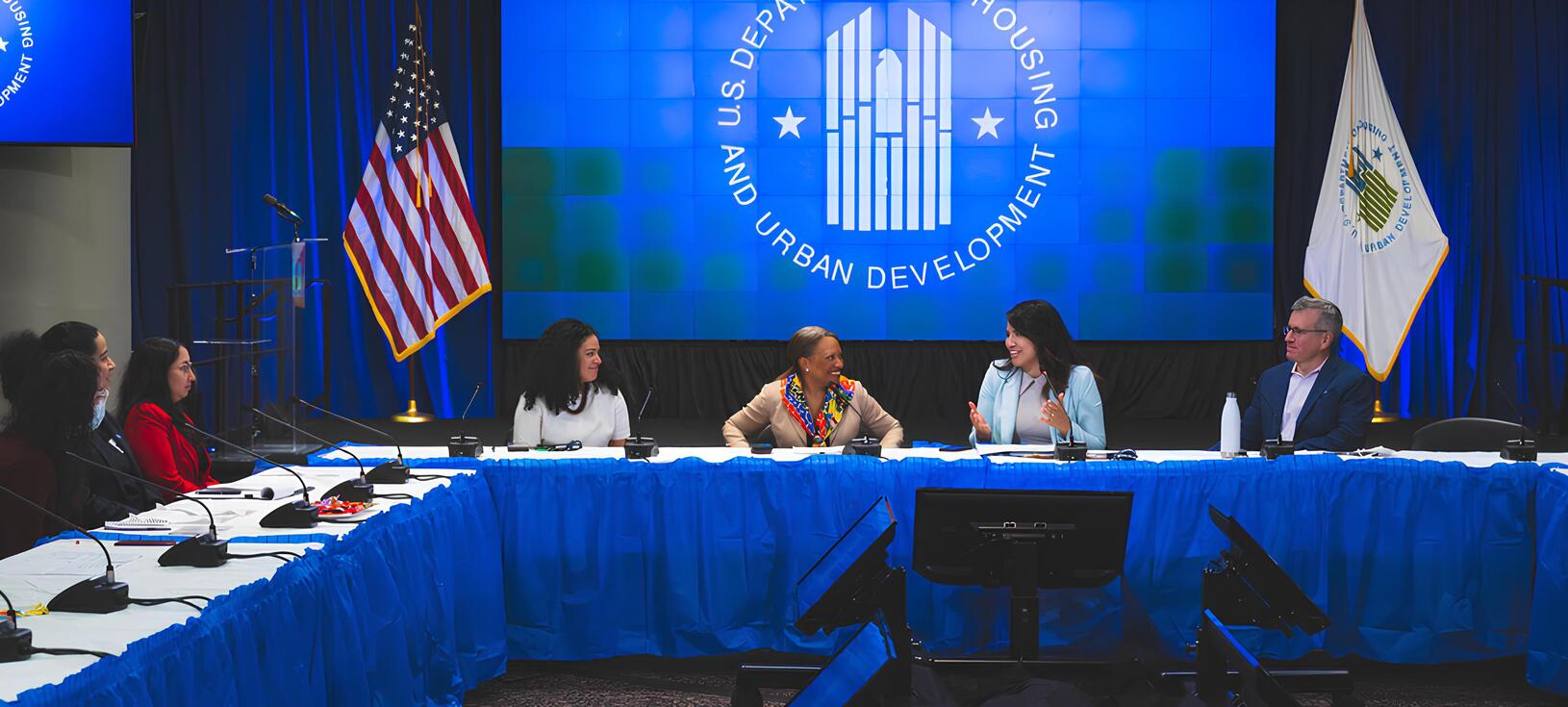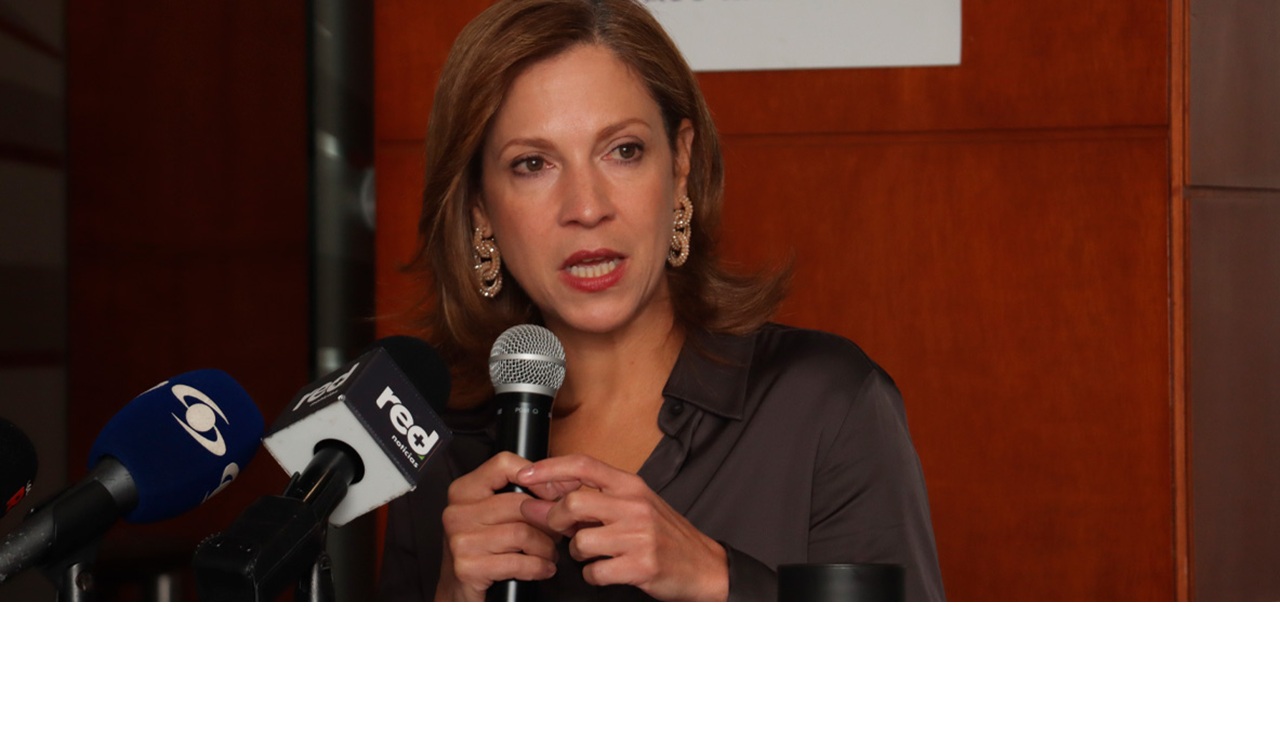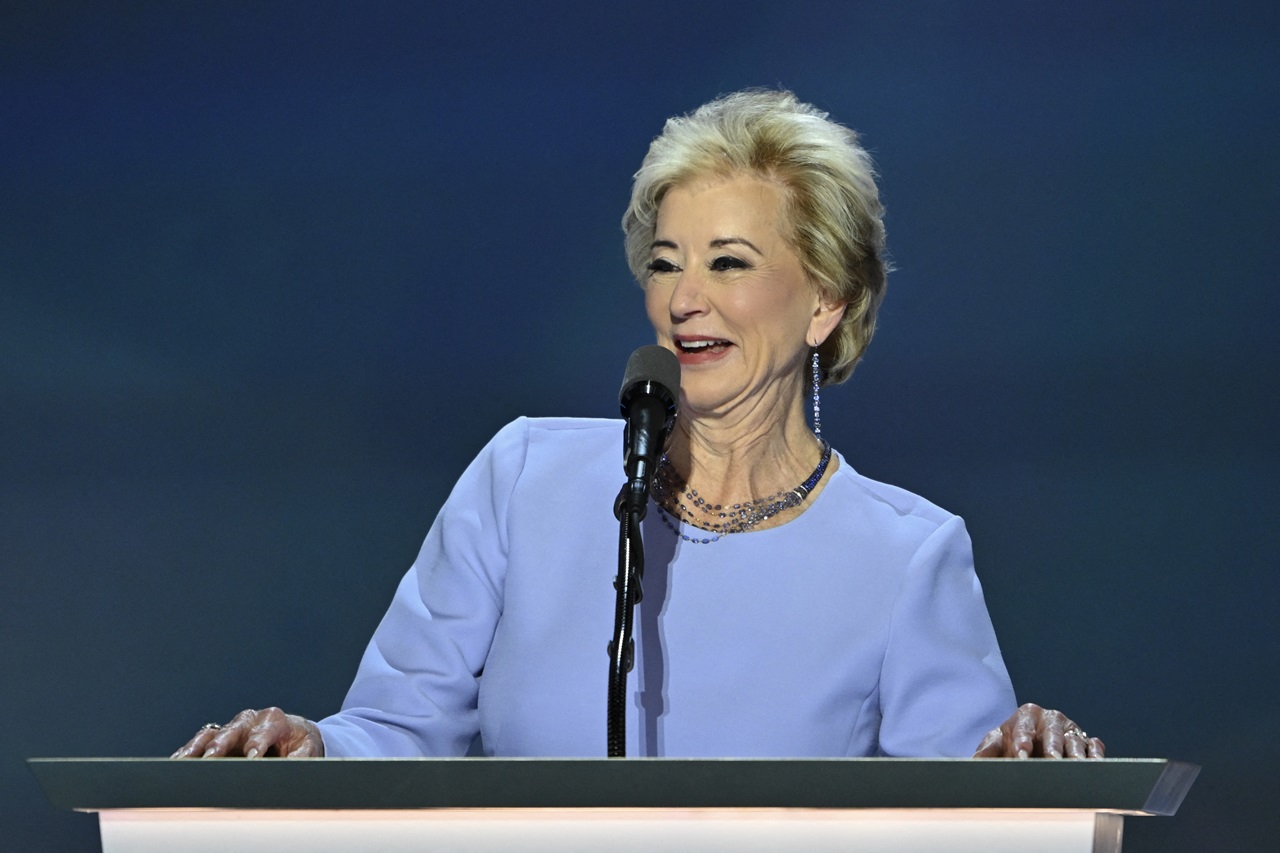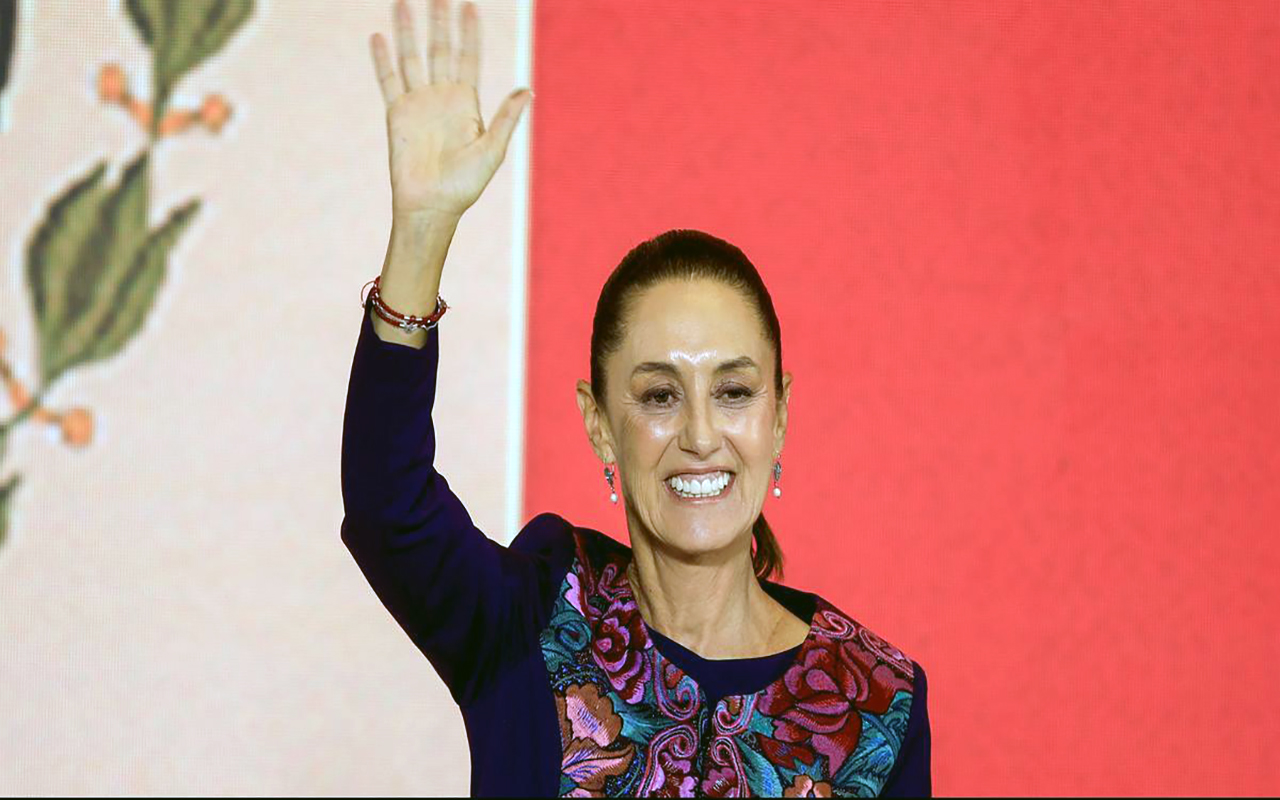
Cindy Nava's journey to making history at the White House
An immigrant born in Chihuahua, Mexico, the program helped get her to her current role.
The Deferred Action for Childhood Arrivals (DACA) program marked 11 years since its creation this past June thanks to an executive order issued during the Obama Administration in 2012.
At this moment, the program is frozen after a federal judge in Texas decided to block access to new applicants in 2021, a decision that, although it allowed DACA to continue in effect for recipients, is part of a Republican effort to shut it down permanently.
As a result of the court order, nearly 400,000 people have been excluded from the program that offered "Dreamers" a legal immigration status with which they could obtain access to better jobs and educational opportunities.
Cindy Nava, beneficiary of the program and a U.S. citizen for two years, pointed out during an interview with AL DÍA News:
DACA brought a multitude of resources and life altering opportunities to those of us who have it or at some point did
Recently, supporters and critics of the program met in court to discuss a Biden administration rule that made the program a federal regulation as a measure to increase its chances of surviving legal challenges.
The federal judge who heard the arguments in Texas must issue a decision on the rule's legality before the end of this year.

Why Should DACA Continue?
Nava, the first beneficiary of the program to obtain a presidential appointment by the White House, plays an important role within the U.S. Department of Housing and Urban Development (HUD).
“DACA changed lives, communities, families, and the U.S. economy as a whole. The unprecedented access and humanity that DACA created for many of us, and our families unequivocally changed our way of living, contributing and of being seen, acknowledged, and recognized. The impact of DACA was felt throughout our family structures,” said Nava.
Thanks to the work of her team, the agency has been able to break new ground so that diverse communities, as well as those that have been historically excluded, can become first-time homebuyers and owners.
11 Years of Dreams
“DACA changed us,” stated Nava with conviction.
One thing Nava is especially grateful to DACA for is the opportunity to qualify for early parole, which has allowed many of the recipients to visit their home countries after a lifetime of disconnection.
In addition, Nava points out that thanks to the program, they were able to represent their parents and support their grandparents during the most difficult moments of the end of life, while their families sat on the other side of the border full of anguish and pain when they recognized the fact that they might never see their children again.
“DACA allowed me to sit next to a hospital bed in Chihuahua, Mexico, alongside my second mother and paternal grandmother, Eva Nava Estrada during her last 14 days on this earth. My ‘Yaya’, as I called her, left us in 2016, but I remember it as if it were yesterday. I will never forget the look in her eyes when she saw me walk through the hospital door after 22 years of leaving Mexico as a child with my parents. I will take her eyes by my side for the rest of my life. Eyes of hope, confusion, disbelief, overjoy, and happiness,” shared Nava.
While the legal battle to save, transform or cancel the program, which is expected to last at least four more years, takes place, with DACA in pause, 580,000 current recipients have been able to continue renewing their status every two years.

Support to DACA
According to figures from the Institute for Taxation and Economic Policy shared by Nava, DACA holders contribute nearly $42 billion to the U.S. gross domestic product each year, and add $3.4 billion to the federal balance sheet.
“DACA recipients are woven into the fabric of this nation and are daily contributors to the communities, economic growth, and prosperity we seek to expand each and every day,” noted Nava.
Likewise, the official stressed that the continuation of the program would guarantee that all those who are eligible are enrolled, something that would increase state and local revenues estimated at $815 million, bringing the total contribution to $2.5 billion and increasing the effective tax rate for those enrolled at 9%.
RELATED CONTENT
“DACA created the opportunity for our government and for an agency like the one I now represent in the U.S. Department of Housing and Urban Development to expand eligibility for DACA recipients to qualify for Federal Housing Administration (FHA) programs, thanks to an important clarification made on day 1 of the Biden administration,” highlighted Nava.
The official is referring to FHA-insured mortgages, which support affordable home financing for first-time homebuyers and others with limited means for a down payment.

About DACA’s Future
“DACA was meant as a short-term compromise at a time when no other long-term policy measure could be passed. After 11 years since the inception of DACA it is time to ensure that DACA recipients receive a pathway to citizenship. DACA recipients strengthen our economy and enrich our workplaces, our schools and communities, and our country as a whole,” underscored Nava.
Born in Mexico, Nava emphasized what she has had to experience as an undocumented immigrant, as well as what she feels now having relatives or friends with DACA or without status, a scenario in which they face daily reminders of uncertainty, fear, instability, and lack of security for families who only want to get ahead.
As a former undocumented immigrant for more than 20 years, Nava stresses that being negative has never been an option.
“Being optimistic gave me hope and courage. Therefore, I deeply believe that being optimistic and hopeful is our only choice. To continue demonstrating the unwavering contributions that are made across the nation with the hope and optimism that a permanent solution and a pathway to citizenship is enacted upon,” said Nava.
The former DACA beneficiary, who points out that growing up undocumented prevented her from participating in sports or youth activities, as well as traveling on excursions, visiting her family in Mexico or applying for student financial aid, continues to advocate for the continuation of the program.
“DACA recipients deserve a permanent fix and action to be enacted now,” stressed Nava.

Message for "Dreamers"
Nava, who is the daughter of two current undocumented immigrants, and whose two sisters are part of the program, is convinced that the hope of the “American Dream,” which she lives day by day, is still possible thanks to the endurance and resilience of the immigrants, who continue to strengthen this country with their work, dedication and “ganas.”
“I see myself in the eyes of DACA recipients because I was them. Undocumented communities and DACA recipients are not and have never been ‘Dreamers,’ as we were branded. Rather, DACA recipients along with our parents have always been and will continue being ‘DOERS.’ The Doers that may have begun cleaning hotels, cooking in restaurants, working extensive hours in the sun as farmers, construction workers, to now serving as Doctors, lawyers, Directors, Executives and continuing to impact lives each and every day in the same way that our parents do,” shared Nava.
Nava, who dreamed of being able to serve and support communities like hers, assures that DACA made that dream come true for her, for which she assures that she will continue working to defend a program that seeks to break the cycle of exclusion, oppression and hardship.
“There is no space for lost hope. Immigrant communities are resilient, exemplary, and true role models. DACA recipients have a path that will continue to be paved and with help and collaborative efforts, optimism and we will continue working towards a permanent fix to provide a pathway to citizenship for DACA recipients,” concluded Nava.












LEAVE A COMMENT: